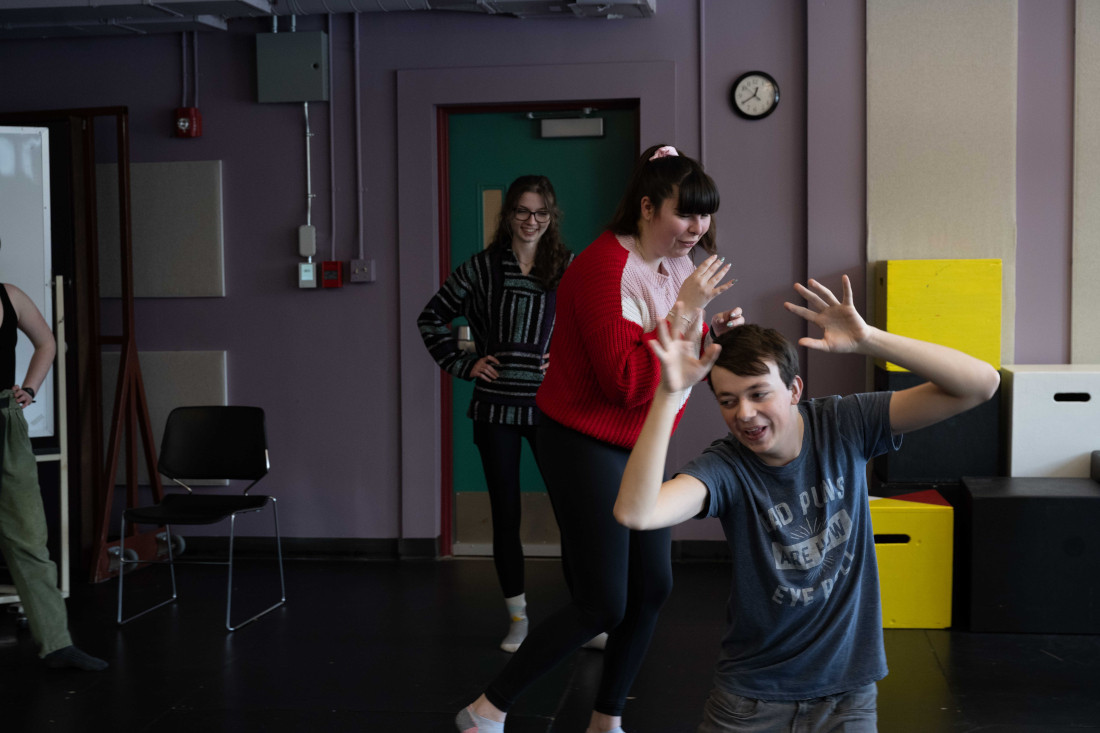The benefits of ‘yes and’
Improv club and the skills it offers
For those who aren’t extroverted by nature, it can be easy to dismiss improv as an activity that demands a certain degree of confidence and social energy. Improv at its core is a form of expression, one that requires its members to work closely with each other.
While speaking to The Uniter over Instagram, Quinton Vander Aa, co-founder of University of Winnipeg Improv, describes improv as “acting without a script.”
He says that while this concept may seem unnerving to some, improv is structured around six categories the group discusses during practices: location, characters, relationship, problem, stakes and conclusion.
The university has long been linked to the city’s larger improv scene, with events such as the Winnipeg Improv Festival, WPG Comedy Festival, and the Winnipeg Fringe Theatre Festival giving previous University of Winnipeg improv groups the opportunity to showcase their talents.
Vander Aa helped revive improv on campus after the previous group dissolved. However, in the spring of 2020, the COVID-19 pandemic interrupted University of Winnipeg Improv’s plans for a show. During campus closures and stay-at-home orders, the group connected online.
“We did Zoom improv during lockdowns, and when restrictions allowed us, we met up at The Forks,” Vander Aa says.
While the group continued to meet, it struggled to bring in new members. The previously scheduled show was put on hold with no new performance date. However, now that students are back on campus, meeting attendance has increased. The group currently sees about six to 10 attendees per practice.
Vander Aa says improv has taught him transferable skills he hadn’t previously learned in the club or in a classroom.
“Whether you have never done improv before and are a bit scared to try (which is totally understandable), or whether you’ve been a part of a thousand improv scenes, I truly believe our club has something to offer you,” he says.
Studies show that participating in improv games, skits and performances can have psychological benefits, such as reducing anxiety and depression. Improv can also improve divergent thinking by reworking everyday language and its accompanying structures.
Vander Aa says the improv group hopes to put on a show sometime this year. He specifies that participation in any show is not a requirement to become a member.
Cora-Lynne Paré, an English student, is a more recent club convert. She joined in an attempt to meet friends while building her confidence and creativity.
The “improv club is unique in the sense that, as a participant, you have the opportunity to be free and create characters and scenarios to any level of creativity,” Paré says.
She says the group is open to everyone, from those “who live and breathe theatre” to “individuals who are new to the theatre world and want to explore their interest in a safe, judgment-free space.”
“We strive to be inclusive to all people and will never push anyone to do anything they don’t want to,” Vander Aa says. “If you’re someone who might be scared to try improv, come on down and just watch a practice – no participation necessary.”
For more information, follow @uwimprovv on Instagram or join the group Tuesdays from 11:30 a.m. to 12:30 p.m. and Fridays from 12:30 to 2:30 p.m. in 0T19 at the Asper Centre for Theatre and Film.
Published in Volume 77, Number 17 of The Uniter (February 2, 2023)








